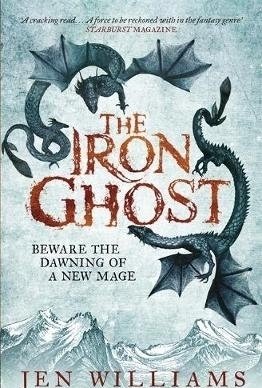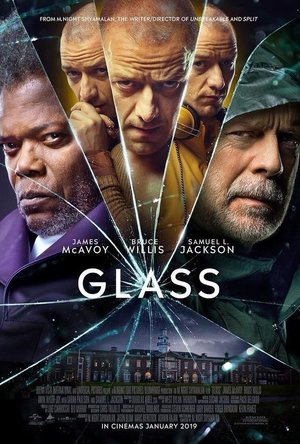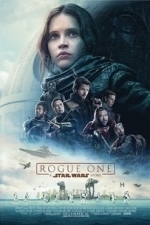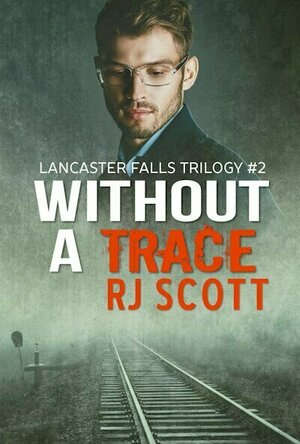Search
Search results
Kristy H (1252 KP) rated About a Girl (Metamorphoses, #3) in Books
Feb 13, 2018
This book tells the story of Tally, who at age 18, seems confident that her life will turn out just as she had planned - summer spent with her best friend, Shane; head to college; become an astronomer... But when Tally starts wondering about her past, she finds herself on a quest to learn more about mother and father, and her neatly ordered life is quickly turned upside down.
This is third book in the Metamorphoses trilogy - Tally, we learn, is the daughter of Aurora, whom Aurora left on her best friend's (now termed "Aunt Beast") doorstep to raise, along with Aunt Beast's best friend, Raoul and his husband, Henri. (All characters easily recognizable if you've read the first two books.)
Needless to say, this is an interesting book. I actually really liked Tally. She's different from Aurora and Maia and even Cass. Tally finds relief in the order of planets and stars. She is a good kid, overall, with a pretty common upbringing, despite the fact it was by her "Aunt" and her friends.
However, when Tally is shown a picture of Jack (and Aurora) and sent off to the West Coast by the shadowy Mr. M - whom she just knows as her friendly neighbor - everything changes. She finds herself sucked into the strangeness of the town where Jack lives, where she can't remember things and time just slips away. As always, the "weirdness" in McCarry's writing comes out, and I'm always not 100% sure I'm following things correctly. I won't spoil the book, but I can point out that Tally meets Maddy there, for whom she falls for deeply.
I probably liked this book the best of the three - I rooted for Tally, and I loved that this book featured a transgender character (Tally's friend Shane) and a lesbian relationship (between Tally and Maddy). Great to see that thrown into a YA book without it truly being the focus of anything. As always, the mystical side of McCarry's novel threw me a bit, but I found it less disconcerting in this one than the previous two, for some reason. While I would have loved more resolution to the story of everyone, this book did seem a fairly fitting bookend to the tales McCarry has woven for these characters.
(Note: I received an ARC of this book from Netgalley in return for an unbiased review.)
This is third book in the Metamorphoses trilogy - Tally, we learn, is the daughter of Aurora, whom Aurora left on her best friend's (now termed "Aunt Beast") doorstep to raise, along with Aunt Beast's best friend, Raoul and his husband, Henri. (All characters easily recognizable if you've read the first two books.)
Needless to say, this is an interesting book. I actually really liked Tally. She's different from Aurora and Maia and even Cass. Tally finds relief in the order of planets and stars. She is a good kid, overall, with a pretty common upbringing, despite the fact it was by her "Aunt" and her friends.
However, when Tally is shown a picture of Jack (and Aurora) and sent off to the West Coast by the shadowy Mr. M - whom she just knows as her friendly neighbor - everything changes. She finds herself sucked into the strangeness of the town where Jack lives, where she can't remember things and time just slips away. As always, the "weirdness" in McCarry's writing comes out, and I'm always not 100% sure I'm following things correctly. I won't spoil the book, but I can point out that Tally meets Maddy there, for whom she falls for deeply.
I probably liked this book the best of the three - I rooted for Tally, and I loved that this book featured a transgender character (Tally's friend Shane) and a lesbian relationship (between Tally and Maddy). Great to see that thrown into a YA book without it truly being the focus of anything. As always, the mystical side of McCarry's novel threw me a bit, but I found it less disconcerting in this one than the previous two, for some reason. While I would have loved more resolution to the story of everyone, this book did seem a fairly fitting bookend to the tales McCarry has woven for these characters.
(Note: I received an ARC of this book from Netgalley in return for an unbiased review.)
Hazel (1853 KP) rated The Paper Magician (The Paper Magician Trilogy, #1) in Books
Dec 7, 2018
<i>This eBook was provided by the publisher via NetGalley in exchange for an honest review</i>
<i>The Paper Magician</i> is the first in a trilogy of fantasy books by Charlie N. Holmberg. Set in London in the early 1900s it explores the idea of magic in a unique and original way. The protagonist, Ceony Twill, is only nineteen and has recently graduated from the Tagis Praff School for the Magically Inclined. For the next few years of her life she is to be apprenticed to a magician who will teach her to use the magic of their chosen material. To Ceony’s disgust she is paired with Magician Emery Thane, a Folder. She is going to spend the rest her life bonded to an extremely boring object: paper.
Ceony and the reader soon discover that there is a particular art to folding paper correctly in order to produce something (e.g. a paper bird) that lives and breathes. But there is something peculiar about Mg. Thane and he ends up in a life and death situation that only Ceony can save him from.
The originality of the plot made this book fascinating to read. A large variety of magical abilities have been explored throughout novels over the years but until now I have not read one that focuses on the material paper. The author has taken something that exists in the known world – origami – and given it a whole new purpose.
Both Ceony and Mg. Thane are likable characters that have a variety of character traits that appeal to a range of different personalities. There were times when their behaviour and speech felt too contemporary for the historical setting resulting in the time period being completely irrelevant to the narrative. Despite this the general storyline was still exciting.
Fantasy novels naturally involve ideas a little beyond the average person’s comprehension, however the middle of <i>The Paper Magician</i> became so far fetched that it was a little confusing for a while.
Overall, <i>The Paper Magician</i> is a fast paced, easy to read book suitable for young adults and fans of fantasy and magic. The story continues in <i>The Glass Magician</i> and the third and finally book can be expected in 2015.
<i>The Paper Magician</i> is the first in a trilogy of fantasy books by Charlie N. Holmberg. Set in London in the early 1900s it explores the idea of magic in a unique and original way. The protagonist, Ceony Twill, is only nineteen and has recently graduated from the Tagis Praff School for the Magically Inclined. For the next few years of her life she is to be apprenticed to a magician who will teach her to use the magic of their chosen material. To Ceony’s disgust she is paired with Magician Emery Thane, a Folder. She is going to spend the rest her life bonded to an extremely boring object: paper.
Ceony and the reader soon discover that there is a particular art to folding paper correctly in order to produce something (e.g. a paper bird) that lives and breathes. But there is something peculiar about Mg. Thane and he ends up in a life and death situation that only Ceony can save him from.
The originality of the plot made this book fascinating to read. A large variety of magical abilities have been explored throughout novels over the years but until now I have not read one that focuses on the material paper. The author has taken something that exists in the known world – origami – and given it a whole new purpose.
Both Ceony and Mg. Thane are likable characters that have a variety of character traits that appeal to a range of different personalities. There were times when their behaviour and speech felt too contemporary for the historical setting resulting in the time period being completely irrelevant to the narrative. Despite this the general storyline was still exciting.
Fantasy novels naturally involve ideas a little beyond the average person’s comprehension, however the middle of <i>The Paper Magician</i> became so far fetched that it was a little confusing for a while.
Overall, <i>The Paper Magician</i> is a fast paced, easy to read book suitable for young adults and fans of fantasy and magic. The story continues in <i>The Glass Magician</i> and the third and finally book can be expected in 2015.
Alice (12 KP) rated The Iron Ghost in Books
Jul 3, 2018
The Iron Ghost was the second of three in The Copper Cat trilogy and it brings back characters from the first book The Copper Promise in full force. This story follows the Blackfeather Three as they travel to a place called Skaldshollow to assist the Skald people in getting back a stolen artefact. As soon as they arrive things start to go wrong and The Blackfeather Three come face to face with trials and tribulations to rival their exploits in the first book.
Ice people, wyverns, crazy mad mages with a thirst for blood and a familiar yet hated demon child all abound and cause all sorts of trouble for Wydrin, Frith and Sebastian.
There’s a neat – if slightly unobvious – split between tenses in this book which was slightly off putting; for example it’d be one chapter in present day Skaldshollow and then the next would be set in the past usually with Sebastian at the Order Temple. It wasn’t bad only unclearly marked, but on the flip side the writing itself showed the tense changes really well.
As with the previous book everything that could go wrong went wrong but the plot line followed a set rhythm that deviated in the smallest of ways but also the biggest – by this I mean that the plot stayed on the same sort of course but then all of a sudden something that was unexpected was thrown in the works and it threw me for a loop.
Other than Bezcavar the new big bad in this book was a long dead mage by the name of Joah Lightbringer or Joah Demonsworn who is miraculously brought back to life by the help of BBezcavar(surprise surprise) so he can continue on in his great, albeit incredibly insane work.
There’s magic galore from Frith, Joah, the Skaldshollow, Bezcavar and even Sebastian! Something happened with Wydrin that I won’t spoil for any of you who haven’t read this book (I highly recommend it!) that completely threw me and made me keep reading until the early hours of the morning. I had a combined “What the hell JW” and “Oh thank you, thank you” moment.
I’m about 110 pages into the third and final installment. I had a heart crumbling moment when Jen told me that on Twitter but made up for it with a pre-order of her new book.
Ice people, wyverns, crazy mad mages with a thirst for blood and a familiar yet hated demon child all abound and cause all sorts of trouble for Wydrin, Frith and Sebastian.
There’s a neat – if slightly unobvious – split between tenses in this book which was slightly off putting; for example it’d be one chapter in present day Skaldshollow and then the next would be set in the past usually with Sebastian at the Order Temple. It wasn’t bad only unclearly marked, but on the flip side the writing itself showed the tense changes really well.
As with the previous book everything that could go wrong went wrong but the plot line followed a set rhythm that deviated in the smallest of ways but also the biggest – by this I mean that the plot stayed on the same sort of course but then all of a sudden something that was unexpected was thrown in the works and it threw me for a loop.
Other than Bezcavar the new big bad in this book was a long dead mage by the name of Joah Lightbringer or Joah Demonsworn who is miraculously brought back to life by the help of BBezcavar(surprise surprise) so he can continue on in his great, albeit incredibly insane work.
There’s magic galore from Frith, Joah, the Skaldshollow, Bezcavar and even Sebastian! Something happened with Wydrin that I won’t spoil for any of you who haven’t read this book (I highly recommend it!) that completely threw me and made me keep reading until the early hours of the morning. I had a combined “What the hell JW” and “Oh thank you, thank you” moment.
I’m about 110 pages into the third and final installment. I had a heart crumbling moment when Jen told me that on Twitter but made up for it with a pre-order of her new book.
Andy K (10823 KP) rated Glass (2019) in Movies
Aug 10, 2019
The Anti-Avengers!
Funny how director M. Night Shyamalan's career has gone. His first major hit blows everyone's minds with one of the most mind-bending plot twists ever captured on film (do you remember being mad at yourself you didn't figure it out).
Then he makes Unbreakable, a thinking man's superhero film which is just as good as The Sixth Sense, but does only modest box office. Then Sign and The Village (both decent, but a step down for sure) and then over 10 years of crap including Lady in the Water and The Happening.
In a strange move, he decides to write and direct a "sequel"? or another film in the same universe with Split which dos well with critics and audiences enough to warrant the 3rd film in the trilogy, Glass.
Train wreck survivor David Dunn is still the one man vigilante "Dark Knight" who lends a hand to the unfortunate when he comes across "The Horde". The two men end up being captured and incarcerated in a mental institution with Elijah Price, another man and David's former nemesis who is currently catatonic. The doctor in change says she has been given only 3 days to diagnose and treat the men before they are sentenced to life in an institution.
One of the men has an agenda which involves all three of them he wants to see played out and will go to any length to ensure its success. The lives of the men are intertwined in certain ways they themselves may not even be aware of.
I was worried when I started watching since I thought the first hour was VERY SLOW to develop with mostly just talking and plotting. Once thing finally get going and the men start interacting with each other it becomes way more interesting.
Good to see Bruce Willis back in a film which actually ran theatrically. He is showing signs of age, but still gives a great performance along with Samuel L. Jackson and James McAvoy.
The ending may not sit well with everyone since it may be considered atypical, but I thought it was fitting and didn't see it coming.
Here's to hoping a revitalized career for the film's interesting and entertaining filmmaker.
Then he makes Unbreakable, a thinking man's superhero film which is just as good as The Sixth Sense, but does only modest box office. Then Sign and The Village (both decent, but a step down for sure) and then over 10 years of crap including Lady in the Water and The Happening.
In a strange move, he decides to write and direct a "sequel"? or another film in the same universe with Split which dos well with critics and audiences enough to warrant the 3rd film in the trilogy, Glass.
Train wreck survivor David Dunn is still the one man vigilante "Dark Knight" who lends a hand to the unfortunate when he comes across "The Horde". The two men end up being captured and incarcerated in a mental institution with Elijah Price, another man and David's former nemesis who is currently catatonic. The doctor in change says she has been given only 3 days to diagnose and treat the men before they are sentenced to life in an institution.
One of the men has an agenda which involves all three of them he wants to see played out and will go to any length to ensure its success. The lives of the men are intertwined in certain ways they themselves may not even be aware of.
I was worried when I started watching since I thought the first hour was VERY SLOW to develop with mostly just talking and plotting. Once thing finally get going and the men start interacting with each other it becomes way more interesting.
Good to see Bruce Willis back in a film which actually ran theatrically. He is showing signs of age, but still gives a great performance along with Samuel L. Jackson and James McAvoy.
The ending may not sit well with everyone since it may be considered atypical, but I thought it was fitting and didn't see it coming.
Here's to hoping a revitalized career for the film's interesting and entertaining filmmaker.
Merissa (13681 KP) rated Wilde's Fire (Darkness Falls, #1) in Books
Dec 17, 2018
WOW! My reading list recently has comprised of paranormal (romance or otherwise) and contemporary romance, so I decided to go back to my first love and read a fantasy book that had been on my t-b-r list for nearly a year. WHY did I wait so long to read this? This is fantasy as it's best. I was hooked in from the start and am now desperate to read the next two in this trilogy. How would you react if you meet the man you've been dreaming of for the past 6 years? Throw on top of that that you're in a whole new world with new rules and new... erm... demons!
Kate is a good main female. She is strong and independent but also has her close circle of her sister and her BFF, Brad. She accepts the new world quite well but does have a minor breakdown when things start becoming clear. To be honest, I don't blame her at all. Even with Arland to soften the blow, she's dealing with a lot and she doesn't even know how Arland feels for her. Flanna joins Kate's close circle as her friend and confidante and helps ease some of the transfer over. Kate is very impressive with a sword even though she has no training but she can't shoot an arrow to save her life! It's nice to have a main female that isn't perfect at everything!
Arland is wonderful. He is doing everything he can to protect Kate from things that she is not even aware of yet. He is proud of her and is already having feelings for her. But there is a lot of pressure on him as the leader of the Watchers Hall and also with undercurrents of power.
The ending is so in tune with the rest of the book. This book does not follow the 'normal' set pattern and instead breaks a new trend within it's pages. I thought the ending finished this book and set up the next book brilliantly. It gives you an idea of what Kate is up against and why. Now I need to read the second book to see 'how'. I loved this book and will definitely be reading the next two. Highly recommended.
Kate is a good main female. She is strong and independent but also has her close circle of her sister and her BFF, Brad. She accepts the new world quite well but does have a minor breakdown when things start becoming clear. To be honest, I don't blame her at all. Even with Arland to soften the blow, she's dealing with a lot and she doesn't even know how Arland feels for her. Flanna joins Kate's close circle as her friend and confidante and helps ease some of the transfer over. Kate is very impressive with a sword even though she has no training but she can't shoot an arrow to save her life! It's nice to have a main female that isn't perfect at everything!
Arland is wonderful. He is doing everything he can to protect Kate from things that she is not even aware of yet. He is proud of her and is already having feelings for her. But there is a lot of pressure on him as the leader of the Watchers Hall and also with undercurrents of power.
The ending is so in tune with the rest of the book. This book does not follow the 'normal' set pattern and instead breaks a new trend within it's pages. I thought the ending finished this book and set up the next book brilliantly. It gives you an idea of what Kate is up against and why. Now I need to read the second book to see 'how'. I loved this book and will definitely be reading the next two. Highly recommended.
David McK (3692 KP) rated Rogue One: A Star Wars Story (2016) in Movies
Dec 18, 2019 (Updated Jun 16, 2020)
"It is a period of civil war. Rebel spaceships, striking from a hidden base, have won their first victory against the evil Galactic Empire. During the battle, Rebel spies managed to steal secret plans to the Empire's ultimate weapon, the DEATH STAR, an armored space station with enough power to destroy an entire planet.
Pursued by the Enpire's sinister agents, Princess Leia races home abord her starship, custodian of the stolen plans that can save her people and restore freedom to the galaxy ..."
So reads the opening crawl to the first Star Wars film (otherwise known as "Episode IV: A New Hope"), with this opening crawl becoming a feature of all the Star Wars films to date.
That is, until this one - the first to NOT have an opening crawl, and the first to NOT focus on any of the Skywalkers. Instead, this film deals with what was originally only just described in that crawl; by the mission to steal those Death Star plans and, as such, is the first completely self-contained and stand-alone Star Wars film.
I'd heard this described as a war movie, and that's probably a pretty fair comparison - this is more serious than the other six (especially the prequel Trilogy), maybe a bit darker in places, with the Rebel Alliance not afraid of getting their hands dirty and not quite the idealists they were originally portrayed as.
As this is back in galactic Civil War territory, we also have the return of some of the original villains of the saga - it's no secret that Darth Vader casts a shadow over the film (while not being the main villain of it), with an extended sequence towards the end showing just why he was so feared, and probably destined to become - like the 3-way Qui-Gonn Jinn/Kenobi/Maul fight in 'The Phantom Menace', or Vader vs Luke in 'The Empire Strikes back' - one of the most talked about scenes in the entire saga.
(As an aside, and talking of scenes: yes, there are scenes shown in the trailers that don't make it to the final cut, but since I managed to avoid (most of) those trailers, I can't really comment on that.)
Maybe a tad slow in getting started, but the bombastic final act more than makes up for it!
Pursued by the Enpire's sinister agents, Princess Leia races home abord her starship, custodian of the stolen plans that can save her people and restore freedom to the galaxy ..."
So reads the opening crawl to the first Star Wars film (otherwise known as "Episode IV: A New Hope"), with this opening crawl becoming a feature of all the Star Wars films to date.
That is, until this one - the first to NOT have an opening crawl, and the first to NOT focus on any of the Skywalkers. Instead, this film deals with what was originally only just described in that crawl; by the mission to steal those Death Star plans and, as such, is the first completely self-contained and stand-alone Star Wars film.
I'd heard this described as a war movie, and that's probably a pretty fair comparison - this is more serious than the other six (especially the prequel Trilogy), maybe a bit darker in places, with the Rebel Alliance not afraid of getting their hands dirty and not quite the idealists they were originally portrayed as.
As this is back in galactic Civil War territory, we also have the return of some of the original villains of the saga - it's no secret that Darth Vader casts a shadow over the film (while not being the main villain of it), with an extended sequence towards the end showing just why he was so feared, and probably destined to become - like the 3-way Qui-Gonn Jinn/Kenobi/Maul fight in 'The Phantom Menace', or Vader vs Luke in 'The Empire Strikes back' - one of the most talked about scenes in the entire saga.
(As an aside, and talking of scenes: yes, there are scenes shown in the trailers that don't make it to the final cut, but since I managed to avoid (most of) those trailers, I can't really comment on that.)
Maybe a tad slow in getting started, but the bombastic final act more than makes up for it!
Sophia (Bookwyrming Thoughts) (530 KP) rated See No Evil (The Faded Trilogy, Book 2) in Books
Jan 23, 2020
See No Evil is the second novel in Chloe Miles' Faded trilogy, with the Chosen Ones trying to get Logan back after the events near the end of Faded. Logan, on the other hand, is trying to get Abigail to leave the Chosen Ones and join the Forces.
The story starts out with a few scenes from later in the book, and Miles blends the scenes together well enough that they flow smoothly they go together really well despite the fact between the few, snippets are taken out so as not to give away in spoilers. Unfortunately, while the prologue is written really well, this simply gives away the answer to Savannah's visions quickly, and possibly the entire plot as well.
See No Evil isn't too action-packed, but it's more than Faded and enough so it's enough so it's not too much (like Au Revoir, Crazy European Chick. That was WAY too much action). Savannah is stronger heroine than when we first met her back in the first novel, Faded. She's supportive while Abigail is grieving, even though Abigail is completely oblivious whose side Logan is on. In fact, Logan even gives himself away by accident! Yet while she's confused, she later brushes it aside.
The attacks have also gotten more creative in a way, though not by much. There are less doors shutting by themselves, no more windows being involved, but there are still just as much storms, winds, lightning, and flying furniture. The endings for those attacks tends to be the same as well the Forces run away. For a name like the Forces, you would have thought they were a force to be reckoned with. Legit name for a group who run away like cowards. :p
While I really enjoyed See No Evil, I feel as though something is missing. I feel very much as though Miles' writing is more for... middle grade due to the life lesson like writing. Something bad happens, the thing gets resolved, then the characters come together and talk about it.
-----------------------
Review copy provided by the author for review
Original Review posted at <a href="http://bookwyrming-thoughts.blogspot.com/2014/08/review-see-no-evil-by-chloe-miles.html">Bookwyrming Thoughts</a>
<a href="http://bookwyrming-thoughts.blogspot.com/"><img src="http://3.bp.blogspot.com/-cG5gfBqJVzk/VA5BIojjZ9I/AAAAAAAAD1g/7srLUfpAGEU/s1600/banner.png"; /></a>
The story starts out with a few scenes from later in the book, and Miles blends the scenes together well enough that they flow smoothly they go together really well despite the fact between the few, snippets are taken out so as not to give away in spoilers. Unfortunately, while the prologue is written really well, this simply gives away the answer to Savannah's visions quickly, and possibly the entire plot as well.
See No Evil isn't too action-packed, but it's more than Faded and enough so it's enough so it's not too much (like Au Revoir, Crazy European Chick. That was WAY too much action). Savannah is stronger heroine than when we first met her back in the first novel, Faded. She's supportive while Abigail is grieving, even though Abigail is completely oblivious whose side Logan is on. In fact, Logan even gives himself away by accident! Yet while she's confused, she later brushes it aside.
The attacks have also gotten more creative in a way, though not by much. There are less doors shutting by themselves, no more windows being involved, but there are still just as much storms, winds, lightning, and flying furniture. The endings for those attacks tends to be the same as well the Forces run away. For a name like the Forces, you would have thought they were a force to be reckoned with. Legit name for a group who run away like cowards. :p
While I really enjoyed See No Evil, I feel as though something is missing. I feel very much as though Miles' writing is more for... middle grade due to the life lesson like writing. Something bad happens, the thing gets resolved, then the characters come together and talk about it.
-----------------------
Review copy provided by the author for review
Original Review posted at <a href="http://bookwyrming-thoughts.blogspot.com/2014/08/review-see-no-evil-by-chloe-miles.html">Bookwyrming Thoughts</a>
<a href="http://bookwyrming-thoughts.blogspot.com/"><img src="http://3.bp.blogspot.com/-cG5gfBqJVzk/VA5BIojjZ9I/AAAAAAAAD1g/7srLUfpAGEU/s1600/banner.png"; /></a>
Debbiereadsbook (1633 KP) rated Without a Trace (Lancaster Falls Trilogy #2) in Books
Mar 23, 2020
Amazing book two!
Independent reviewer for Archaeolibrarian, I was gifted my copy of this book.
Bok two in the Lancaster Falls trilogy. I would say you really SHOULD read book one, What Lies Beneath, before this one. There is a underlaying story line that runs through all three and you need the information that comes out in that book.
Drew returns home when his brother's remains are discovered. Logan is a cop in town, and the pair butt heads. But deeper than the need to know what happened to his brother, Drew finds he needs Logan at his side. Both men have their secrets, though. As the town reveals its darker side, Drew and Logan have to decide whether the other is worth the heartache.
So, book 2 and Lancaster Falls is giving up its secrets. Darker, deadly and so much MORE than book one, I LOVED this!
Drew ran, after Casey disappeared and did not return. He said some things, his mum said some things and they fell out, and Drew ran away to the army. Now, with Casey's body being found, Drew returns to face not only his own demons, but Casey's too. Logan is a distraction, one he will willing use to attempt to shut out his problems.
Logan will, in turn, use Drew but to a lesser extent. Their first coming together is angry, its a battle, and its glazed over in a way that I really and honestly LOVED! I mean, the whole scene is a couple of pages, but it packs a powerful punch. It sets the way for these two, in a way I really enjoyed watching develop, and in a way I really didn't quite see coming.
Something set me off about certain people, and turns out, I was right, but now I'm left with some questions about how things will become clear as to what happened, not only to Casey, but the others.
Again, nothing is laid out for you, and I find myself putting bits together all wrong and now, I want book three! I NEED book three and I have to wait til June. I need to know what happened to everyone, and what that epilogue means, cos let me tell ya, I have no freaking clue how this will play out and I bloody LOVE that I don't!
5 more amazing stars!
**same worded review will appear elsewhere**
Bok two in the Lancaster Falls trilogy. I would say you really SHOULD read book one, What Lies Beneath, before this one. There is a underlaying story line that runs through all three and you need the information that comes out in that book.
Drew returns home when his brother's remains are discovered. Logan is a cop in town, and the pair butt heads. But deeper than the need to know what happened to his brother, Drew finds he needs Logan at his side. Both men have their secrets, though. As the town reveals its darker side, Drew and Logan have to decide whether the other is worth the heartache.
So, book 2 and Lancaster Falls is giving up its secrets. Darker, deadly and so much MORE than book one, I LOVED this!
Drew ran, after Casey disappeared and did not return. He said some things, his mum said some things and they fell out, and Drew ran away to the army. Now, with Casey's body being found, Drew returns to face not only his own demons, but Casey's too. Logan is a distraction, one he will willing use to attempt to shut out his problems.
Logan will, in turn, use Drew but to a lesser extent. Their first coming together is angry, its a battle, and its glazed over in a way that I really and honestly LOVED! I mean, the whole scene is a couple of pages, but it packs a powerful punch. It sets the way for these two, in a way I really enjoyed watching develop, and in a way I really didn't quite see coming.
Something set me off about certain people, and turns out, I was right, but now I'm left with some questions about how things will become clear as to what happened, not only to Casey, but the others.
Again, nothing is laid out for you, and I find myself putting bits together all wrong and now, I want book three! I NEED book three and I have to wait til June. I need to know what happened to everyone, and what that epilogue means, cos let me tell ya, I have no freaking clue how this will play out and I bloody LOVE that I don't!
5 more amazing stars!
**same worded review will appear elsewhere**
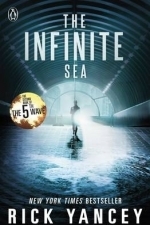
The Infinite Sea
Book
The Infinite Sea is the second book in the phenomenal and bestselling 5th Wave series by...
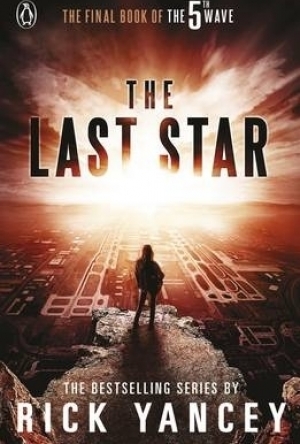
The Last Star
Book
The Last Star is the heart-stopping finale to the bestselling 5th Wave series by award-winning...

